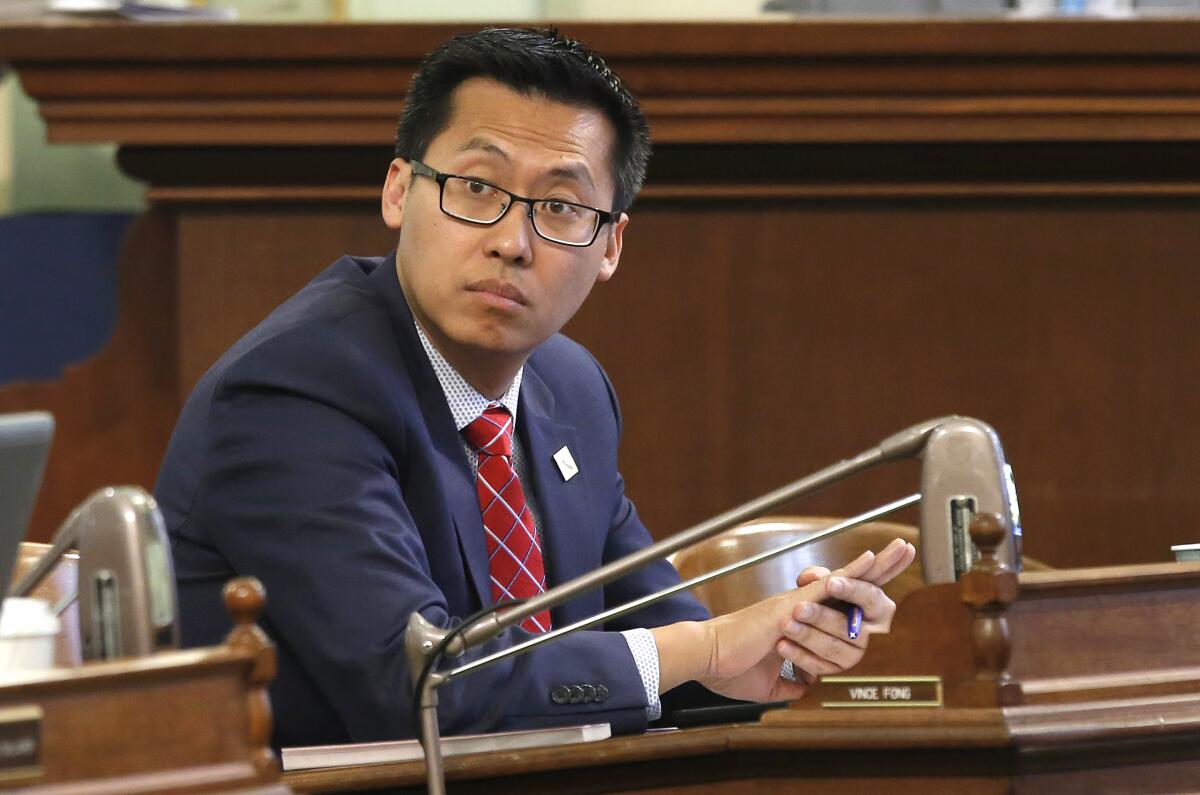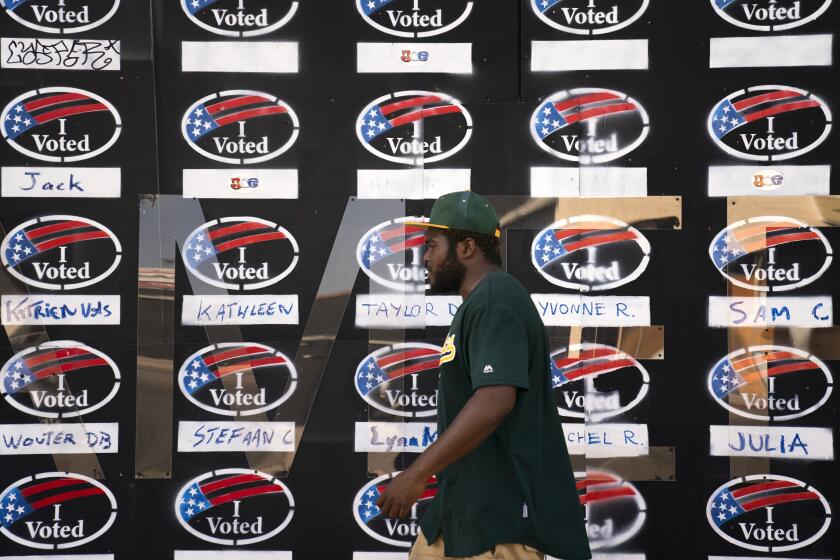Editorial: Double-dipping candidates like Vince Fong are taking advantage of election loophole

- Share via
Astute voters in the San Fernando Valley may notice that Carmenlina Minasova is on their March 5 primary ballot twice. The respiratory care practitioner is running for Los Angeles City Council against incumbent Imelda Padilla, and for an open seat in the California Assembly representing District 43.
How is this legal? Because of a loophole in state law, one that Assemblymember Vince Fong (R-Bakersfield) exposed last year when he fought the secretary of state for the right to run simultaneously for reelection and for the congressional seat recently vacated by former House Speaker Kevin McCarthy.
While the presidential contest will garner the most attention in 2024, there are many important races and measures on state and local ballots.
Fong and Minasova aren’t the only candidates double dipping this election season.
Whittier City Councilmember Jessica Martinez is a candidate for Assembly District 56 in the March primary and also running for reelection to the City Council in the April 9 Whittier municipal election. And there could be more. In the San Joaquin Valley, several candidates for office — including two running against Fong in the 20th Congressional District — told a local news outlet that they are also considering running as write-ins for Fong’s Assembly seat on the March 5 ballot.
Even if candidates are running on different ballots, it’s a problem when the terms they seek overlap. If a candidate were to win both contests, he or she would have to choose one to accept, forcing another election to fill the other seat.
The Times’ editorial page will begin publishing its endorsements for the March 5 ballot this week. There’s a lot more than just the presidential primary.
According to local election officials, double-dipping candidates aren’t breaking any laws. Los Angeles, for example, bars people from running for more than one city position at the same time, but says nothing about running for city and state office at once, a spokesperson for the L.A. County registrar-recorder said.
Secretary of State Shirley Weber, however, disagrees. In refusing to let Fong run for the congressional seat, she cited the state Elections Code, which says a person may not run “for more than one office at the same election.” Fong sued, and was backed by Sacramento County Superior Court Judge Shelleyanne W.L. Chang, who said that language no longer applies since California changed the state’s primary system, eliminating party nominations in favor of the top-two system in which the two leading vote-getters regardless of party compete in the November runoff.
Weber’s office is appealing the ruling, in which Chang noted that “it somewhat defies common sense to find the law permits a candidate to run for two offices during the same election.”
California’s primary election takes place on March 5. Read up on the races in L.A. city, L.A. County and other areas.
It does defy common sense. Allowing people to run for multiple offices at once can confuse voters and undermine confidence in the electoral system. If a candidate wins in more than one race, the district would go without representation until a special election is held to fill the unoccupied seat. And special elections are expensive for taxpayers and tend to have very low voter turnout, which is not ideal for a healthy democracy.
This isn’t the first time someone has run for more than one seat at the same time, but it’s rare and generally used by fringe candidates who are unlikely to win any race. It’s become an issue now because Fong stands a good chance of winning both elections. He is running unopposed for reelection to the Assembly and is considered a front-runner for the congressional seat.
No matter what happens with Fong’s race or lawsuit, state lawmakers should clarify the law so state and local candidates are explicitly prohibited from running for multiple offices at once.
Two bills seek to fix this confusion for future elections. Assemblymember Gail Pellerin (D-Santa Cruz), a former county elections official, introduced Assembly Bill 1784, which would prohibit a person from filing nomination papers for more than one office at the same election. Assembly Bill 1795 by Assemblymember Wendy Carrillo (D-Los Angeles) is similar, though it would allow a candidate to withdraw from one race to run for another office if the filing period for that office is extended because an incumbent doesn’t run for reelection.
This should be an easy one for legislators and Gov. Gavin Newsom. Allowing candidates to game the system for their benefit is unfair to voters and bad for democracy.
More to Read
A cure for the common opinion
Get thought-provoking perspectives with our weekly newsletter.
You may occasionally receive promotional content from the Los Angeles Times.













